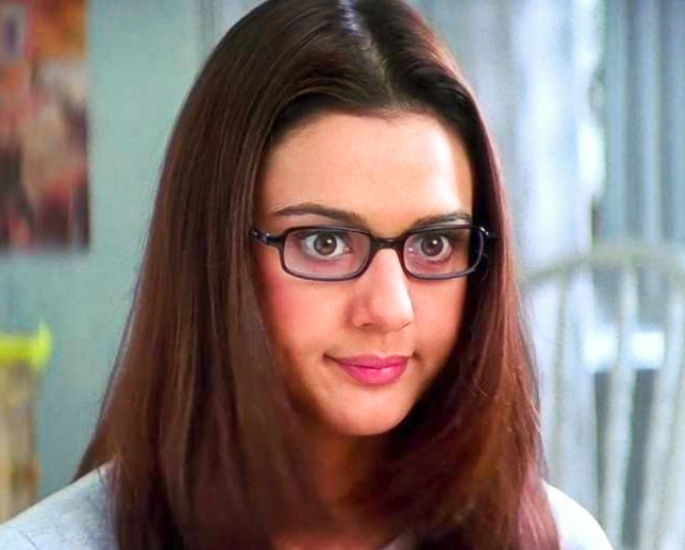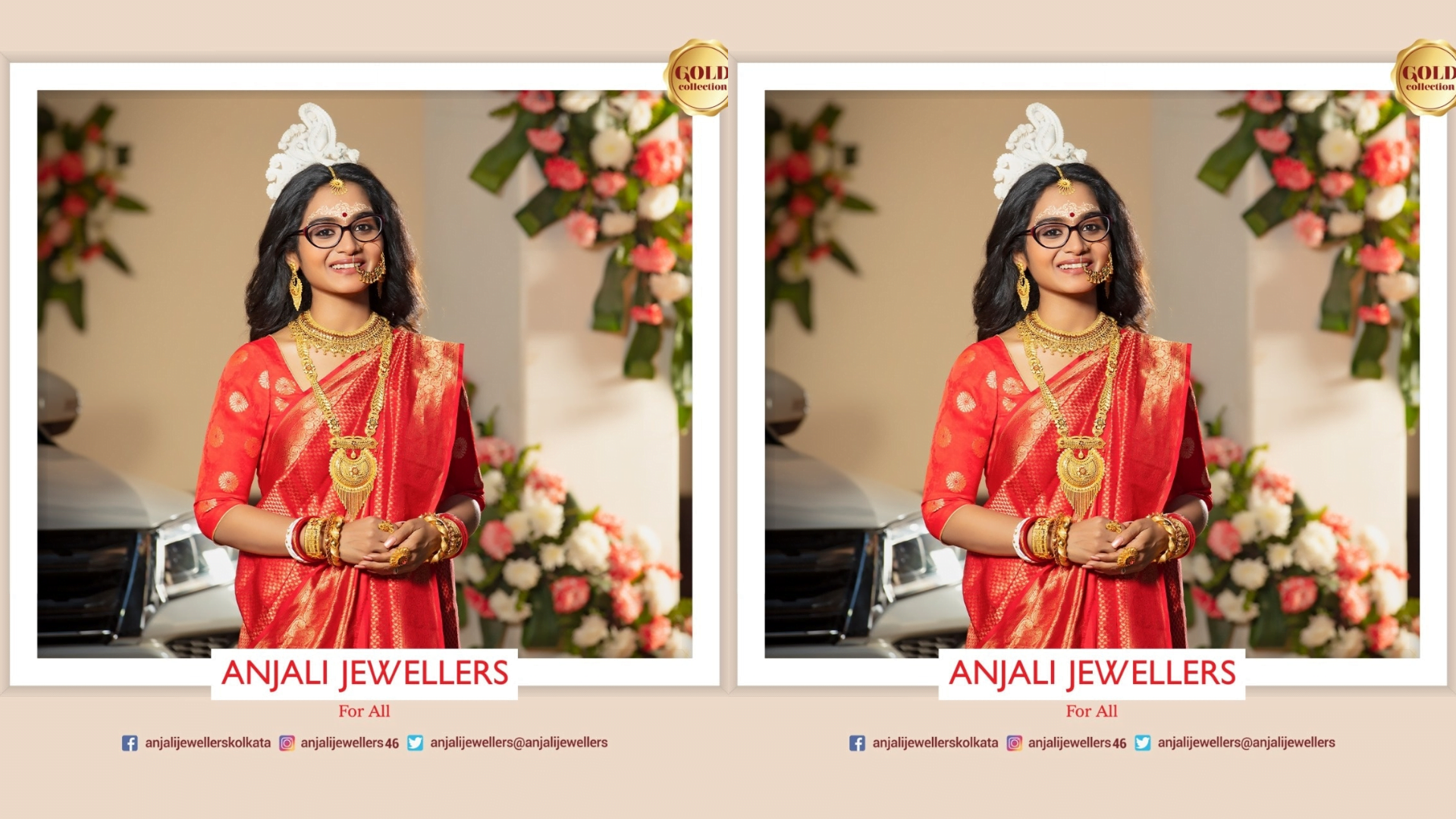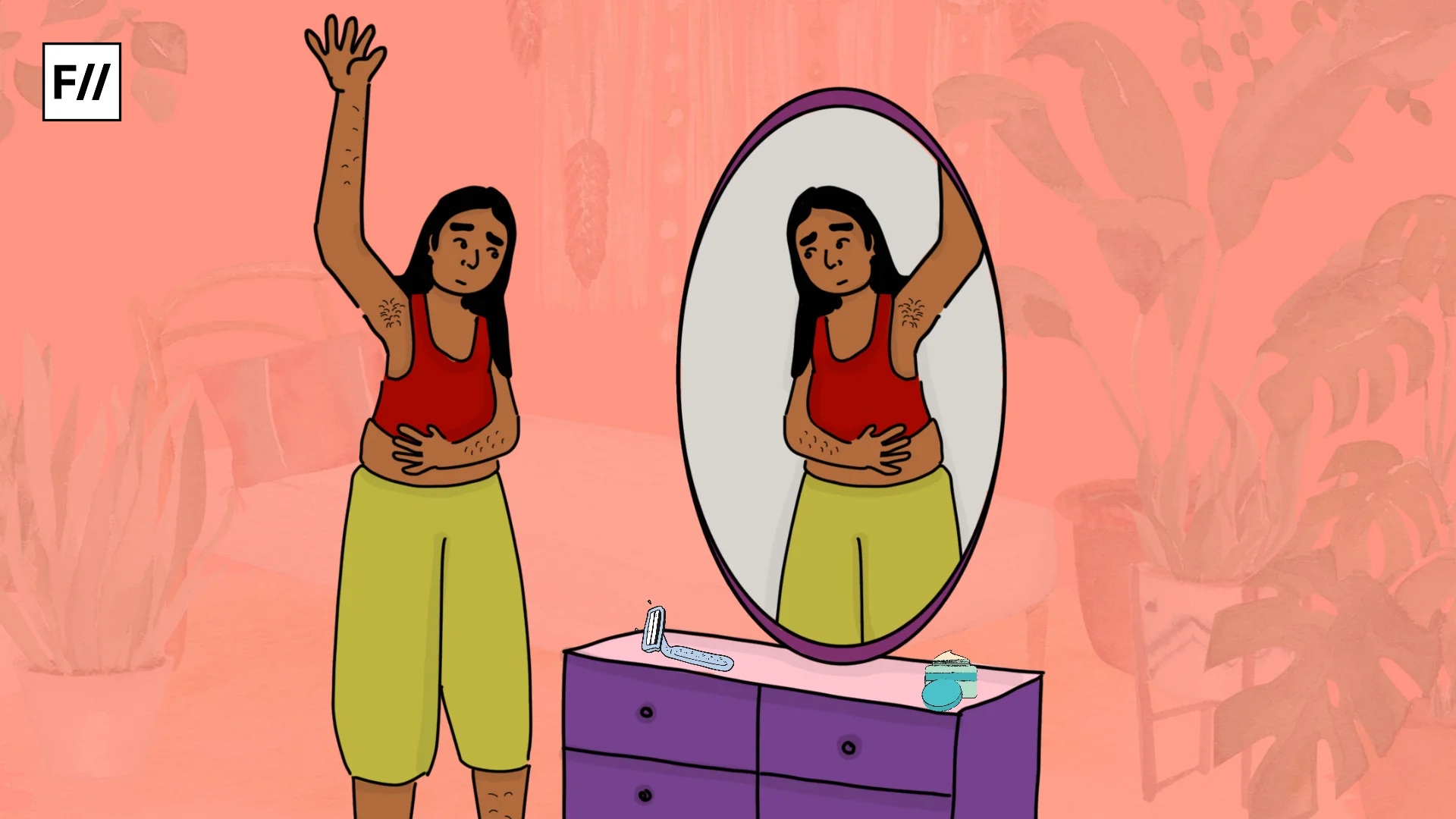Way too many rom-coms employ the trope where the female lead loses her eyeglasses only for the male lead to suddenly see clearly and realise “she was beautiful all along!”
Glasses have had quite the journey, thanks to popular culture: from being the marker of “geekiness”, to (lazy) disguises, to the one pesky obstruction during makeovers from dork to diva, and back to “geekiness” as a — decidedly Western — fashion trend.
Did you know that Amelia Mignonette Grimaldi Thermopolis Renaldo and Naina Catherine Kapur share a common enemy? This brittle villain is called a spectacle, and its villainy is frequently getting in the way of beauty and ‘true love.
In all this back and forth about what looks “cool” and/ or “beautiful”, somehow spectacles have lost their innocuous, ontological purpose, i.e., a corrective aid for poor vision. Eyeglasses have become all but a disposable accessory, regardless of whether one needs lens power. They do much more than correct vision; they decide their wearer’s personality.
In all this back and forth about what looks “cool” and/ or “beautiful”, somehow spectacles have lost their innocuous, ontological purpose, i.e., a corrective aid for poor vision. Eyeglasses have become all but a disposable accessory, regardless of whether one needs lens power. They do much more than correct vision; they decide their wearer’s personality.
I am all too familiar with eyeglasses. I come from a family with eyesight so poor; their double-digit lens powers are the stuff of legends. I myself have been bespectacled for so long, my specs are now an extension of my body, as corrective aids are often wont to be.
So not surprisingly, I thought glasses, in fashion and pop culture, belong to people who want to showcase their intellectual prowess or who are looking for an accessory to pair their ‘power suits’ with. They are the antithesis of conventionally feminine beauty and fashion, and so like Clark Kent, one must tear them off their being in order to feel like Superman at parties.
So why did I, someone for whom glasses are mundane — stop in her tracks when she saw a huge banner of this Anjali Jewellers ad at the busy Golpark junction? It’s because I had never seen a bespectacled bride before.

I remember feeling simultaneously connected to and alienated from the image I saw before me. Connected because this bride validated my lived experience. Alienated because no one else had before her, and so, I didn’t know the combination of bridal wear and glasses could be a reality. Neither at parties nor in pictures on social media had I seen (young) women wear glasses with their lehenga cholis, gowns, or even sarees when it came to dressing up — let alone pairing specs with bridal attire.
Many women my age (friends, relatives, colleagues) are bespectacled, of course. I think in urban spaces especially, 20/20 eyesight is a rare phenomenon. It is most common to see bespectacled individuals around you. But I’ve seen most of these women automatically shed their specs for a more inconspicuous pair of contact lenses. In fact, an essential part of getting ready is trading in glasses for contacts.
It’s almost as if eyeglasses counteract beauty.
Some choose a more permanent route and even undergo corrective eye surgery. LASIK is a common, hassle-free, albeit expensive alternative to contact lenses or eyeglasses.
So not surprisingly, I thought glasses, in fashion and pop culture, belong to people who want to showcase their intellectual prowess or who are looking for an accessory to pair their ‘power suits’ with. They are the antithesis of conventionally feminine beauty and fashion, and so like Clark Kent, one must tear them off their being in order to feel like Superman at parties.
I didn’t realise that I had internalised this belief until I saw this jewellery ad, until I realised that bespectacled brides are rarer than honest politicians.
As I absorbed the ad and did a double take of the norms of beauty that had been instilled in me (and in so many other women, I’m sure) — and which I had inadvertently undermined because I cannot afford contact lenses — I realised again, the sheer power of representation. Especially representation that is subversive without advertising the subversion. The most potent kind of power is the kind that doesn’t call attention to itself.
Indeed, this ad stands in a place in Golpark that has featured Anjali Jewellers hoardings for years now. And this ad is, for all means and purposes, only about wedding jewellery and not explicitly about inclusivity. It doesn’t say anything about specs and bridal attire being an anomaly and how this brand is now challenging this invisibility. It only bears the simple tagline: “Anjali Jewellers for all”. It’s just a regular ad, only this time, featuring a bespectacled bride where hundreds of specs-less brides have stood before.
And isn’t that how power works, in such unsuspecting, intrusive ways? That’s why representation can be and is such a powerful way of producing new knowledge systems and thus, creating change.
Therefore, the purpose of writing this article isn’t to shame anyone for their preferences of one apparatus over another, nor to advocate the benefits of wearing glasses everywhere — I know first-hand the nuisance that glasses can be at times (raise your hand if you’ve been personally victimised by masks fogging up your glasses). Nor do I look down upon the appropriation of glasses according to one’s style of clothing — reclaiming ‘nerdy’ as fashion is empowering.
The purpose of this article is only to draw focus on the motives that drive us to reach for ‘invisible’ aids over our daily wear during particular occasions. It is to ask whether we are consciously swapping apparatuses for ourselves or because we are indoctrinated with preconceived notions about what one is supposed to wear while dressing up.
Are we choosing contact lenses for convenience or because we believe not choosing them is tantamount to looking “dorky”, “ugly”, “geeky”, or “serious” as a direct contradiction to “cool”, “pretty”, or “fun”? How come glasses are immediately slick and swanky when they are shaded? Why can shades be paired with Indian party wear when dancing to “Kaala Chashma” or “Aaluma Doluma” but their transparent predecessors are an anomaly? If the personal is political, there is merit in asking what the popular, socio-cultural contexts are that dictate why and when we wear or shed an essential apparatus.
It is almost ironic how there’s so much invisibility about an apparatus meant to correct vision. And so, it makes me very happy to walk past the bespectacled bride every day.
Also read: Understanding The Beauty Myth & Its Implications In The Modern Indian Society
I look at her through the same glasses I’ve worn since I was 12 and yet what I see is a brand new image that empowers me and validates my experience in a way that I did not realise I needed.
Also read: ‘I Am A Feminist And I Like Makeup’: Navigating Beauty Standards While Being Feminist
Featured image source: Anjali Jewellers
About the author(s)
Dipshikha completed her Masters in English in 2020 from The EFL University, Hyderabad. Her primary area of interest is the intersection of Queer Studies and Film Studies. She is currently enrolled in a film appreciation course at FTII, Pune and works as a researcher at Arth Early Learning Spaces, Kolkata.




